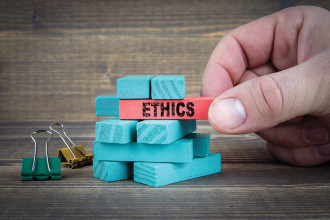
Keep gossips, liars and dream-killers at bay
Toxicity never did anyone any good. It debilitates you, weakens your faculties. It corrodes you from within and erodes your better external aura. Any which way, toxicity is slow poison for both managers and workers. Therefore, it is best kept at bay whether in personal life or in business. Yet, toxicity keeps raising its ugly head far more often than it could be welcome, if at all.
But who exposes you to toxicity? Who are the unknown or hidden saboteurs of your success? They are not invisible agents. On the contrary, they are the very individuals with whom you spend a large part of your professional and business life, that is, your friends and co-managers – senior, junior or of the same rank. For your own good and also that of your company, you should draw a lakshman rekha between you and them.
Why is this so terribly important? Is the need for keeping toxic elements away based on any empirical data? While that hunt can go on, one can seek guidance from noted motivational speaker Jim Rohn’s famous quotation that we are the average of the top five people we associate with. Haven’t we found this to be a reality at different stages of our own lives? Rohn knew his onions the best. His practical wisdom enabled him to emerge as one of the foremost business philosophers who rose from rags-to-riches in line with the Great American Dream.
In a data-fortified approach, MIT Sloan came up with some revealing developments in their study of the Great Resignation in 2023. They discovered that workers were 10.4 times more likely to quit jobs because of toxic work culture than to leave because of compensation. Obviously, working 40 hours a week at their job, toxic work culture would make them feel burnt out and disengaged. Besides the financial blow, toxicity is also known for causing physical and mental health damage.
With the lethality of toxicity being pretty well established, let us observe its manifestations, at least, on the organisational level: low enthusiasm and negativity; role confusion and dysfunction; chronic and excessive stress; pervasive and malicious office gossip; and high turnover rates. We witness this happening in companies and enterprises day in and day out. Organisations usually find themselves helpless in coming up with a concerted counter response to the malaise of toxicity and continue to decay.
However, bearing in mind the target group of this column (young and potential managers) and also because the suggested approach would serve a wider objective, let me focus on the manner in which toxicity grips an individual manager. I firmly believe that well-prepared budding managers can reverse the tide against toxicity, if informed and trained in advance.
Toxicity does not get born on its own. Like most things and phenomena, it is created, spread and promoted by a certain type of individuals who are found in all companies. They need to be avoided like the plague. Let us identify them.
Gossips: As Amy Chambers wrote in The Entrepreneur, gossips eat up much of your time talking about others rather than about your own ideas. Ultimately, you end up spending your time talking about persons or things which are beyond your control. Would it not make sense if you focused on matters you could control, impact and influence? In a way, remaining stuck with gossips is keeping you away from opportunities that beckon you.
Quoting the theory of psychologist Murray Brown, Amy Chambers wrote: “…a two-person emotional system is unstable: under stress, it forms itself into a three-person system or triangle. Gossiping with others can be a way of building a bond with them, which serves as a substitute for bonding over something more meaningful. Sadly, when people learn to build bonds in this way (triangulating: involving a third absent party), it’s hard for them to turn it off. It becomes a pattern of behaviour and this habit is hard to break.”
Liars: Repeated liars destroy trust, the most vital ingredient in any relationship. Regaining trust takes a lot of work and yet remains feeble and fickle. Ties turn weaker as you never know whether trust-violators will remain trust-worthy any longer. Instead, a doubting mind starts wondering: how longer? Work suffers as businesses usually work in teams. The only way out of the ticklish situation is a tough conversation.
Dream-killers: Only the daring dream with open eyes. They are visionary and innovative. They love sharing their ideas and getting feedback. Imagine individuals of such ingenuity being surrounded by persons who are prone to shooting down the brightest of ideas blipping on their radar; all modern ideas will be vanishing even before twinkling adequately enough. Ideas will die young simply because a breed of naysayers chooses to pronounce them silly even before they strike roots. Will anyone dare to come up with new ideas let alone try to implement them? Businesses will be left gasping for breath.
Can we let that happen?






